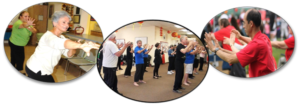Researchers: Dr Sarah Ryan; Professor Andy Hassell; Dr Zoe Paskins; Dr Sam Hider; Mike Brooks and Trina Rule.
Funders: Haywood Foundation £15,752; Clinical Research Network £9,544.50
What did the study set out to do?
The aim of the study was to understand how the coronavirus pandemic impacted on the physical, emotional and social health of people living with rheumatoid arthritis. 15 people aged between 45-79 years took part in 3 interviews during the pandemic.
What were the findings?
- The main impact was on emotional wellbeing and dominant feeling was one of fear, influenced by:
- Having rheumatoid arthritis (an auto-immune condition)
- Taking arthritis medications
- Having other medical conditions
- Being classified as being ‘clinically extremely vulnerable’
As the pandemic progressed fear increased due to the discovery of new variants of the virus, the increasing number of deaths reported in the media and participants having personal knowledge of someone who had died as a result of COVID-19.
- Restrictions on social participation had a bigger impact as the pandemic progressed. Many participants adopted a modified form of shielding and left the house, after making an assessment of personal risk to maintain their emotional wellbeing and to address social isolation.
- Physically, health remained good with the majority of participants not experiencing an increase in the activity of their arthritis.
Self-management skills learnt to manage the impact of rheumatoid arthritis, including relaxation, exercise and mindfulness techniques, were used to help cope with the pandemic.
What are the key take home messages from this research?
- Involving patients in the content of healthcare communication and providing access to health professional support may reduce psychological distress.
- A volunteer telephone befriending service could help address social isolation.
- Pre-existing self-management skills can be transferred to other situations



